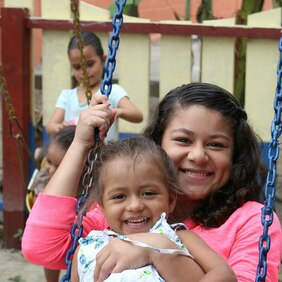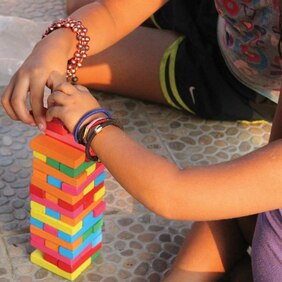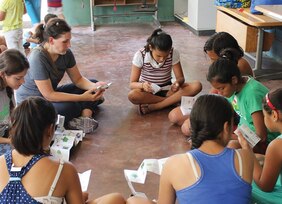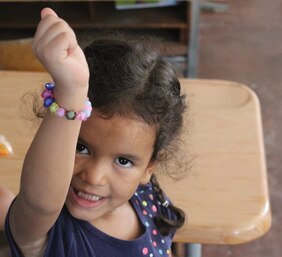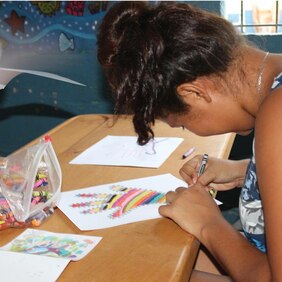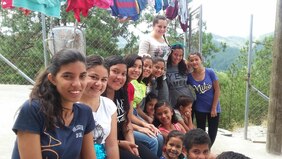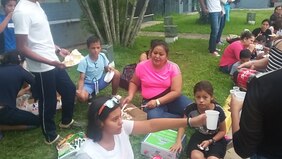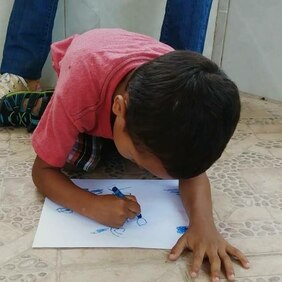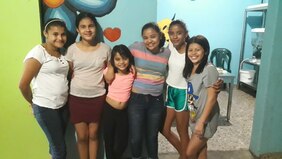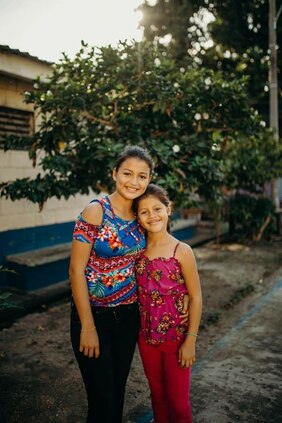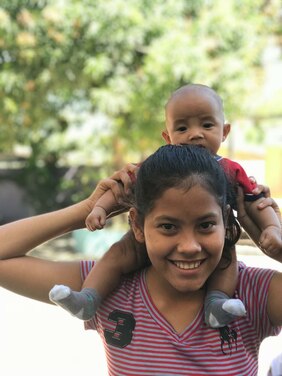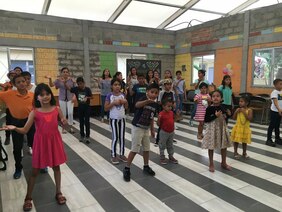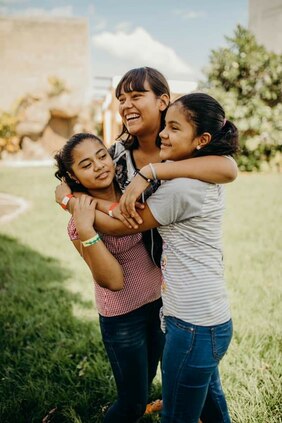Annual review 2018
Sometimes it is useful to pause in your life and analyse your current situation. Where do I stand? Where do I want to go?
Such questions are also important to our children and for this reason, we asked our children to fill out a questionnaire which deals exactly with such questions.
1) The results showed that the best moments in 2018 were perceived as the ones when we as a family did something and enjoyed time together (88%): Christmas, family outings, family holidays in Santa Rosa de Copán or just spending time together.
These data show that our children have a deep sense of belonging to the social group created internally at our children's home "Yo Quiero Ser...". This aspect also shows that our children develop skills to create interpersonal relationships in society, to empathize with other people and this ultimately enables them to interact positively in these collective activities.
2) The biggest challenges in 2018 for the children were to pass the school year successfully in order to be admitted to the next class as well as to overcome Ariana's loss and the tragedy of her illness.
It was surprisingly clear to see that most of them had set themselves well defined individual performance goals. The top priority was usually the successful completion of the school year.
3) On the emotional level, our children have managed to develop compassion for the pain of a fellow human being. For example, 2/3 of the children asked consider Ariana's illness and death to be the saddest and worst experience, followed by personal strokes of fate.
Annual goals 2019
1) 95% of the children felt good to very good on the day of the survey, only one child was sad because it had behaved badly.
2) The main academic goal this year is to write good grades and to pass the school year. Some have to graduate from high school which is their utter most important priority.
This behaviour reflects that the children within the home have adopted a good attitude of discipline, responsibility and commitment.
3) The personal goal for most of the children is to behave well, to help in the home, to be a good-hearted and responsible person and to help others wherever possible.
From this it can be concluded that all children not only receive a humanistic education, but also experience a school of life in the home, which indirectly evokes a feeling of solidarity in them and awakens their desire to be able to help people in need of support in the future.
4) At the end of the year everyone wants to feel good, satisfied and grateful. Overall, they want to be a good person.
5) We went even one step further and asked them what dream the secondary school students wanted to have achieved within 5 years and the primary school pupils within 10 years.
The results of this question show that children with a time horizon of 5 or 10 years have a clear idea of their academic goal in order to achieve the desired quality of life they are aiming for. This means that the majority would like to study at university and then work as well-trained professionals. We are also pleased that many of them have a social streak. Because they want to support people in need, the children's home "Yo Quiero Ser..." and their own family.
Significance of the children's home
The expressions "my family", "life chance", "my home", "place of peace" and all other answers considered show that our children can satisfy the majority of their basic needs by living at our children’s home. These answers correspond to the fourth and fifth levels of the Maslow pyramid (or hierarchy of human needs).
Abraham Maslow sees in his pyramid or scale of needs in the three lower levels the physiological, safety and social needs, while in the last two, i.e. in the upper part, the human needs related to self-esteem, appreciation and self-actualization.
In other words, our children show with their answers that they have satisfied their material, appreciative and social needs and are thus in the process of self-realization. They reach this level at the moment where they find an answer to "I want to be ...".
Importance of godparents and sponsors
All children are of the same opinion and appreciate the support. For them they, the godparents and sponsors, are family members which they love, a gift from heaven, good people and friends.
Thanks to the fact that they have an emotional intelligence, they are able to appreciate the people who support our organization. Through their words, they express a sense of closeness, even though the sponsors are physically far away.
The children show not only gratitude to the godparents and sponsors, but also that they understand the family concept as a social unit that enables the development of each one of them through support and solidarity.
To you, dear godparents and sponsors, they wish you all God's blessing, only the very best and that you hopefully come to visit us once. By doing so, they give the godparents and sponsors a sense of gratitude and that a sincere wish has no limits, because they unconsciously realize that the material support they receive is a valuable help that transforms every single life of them.

